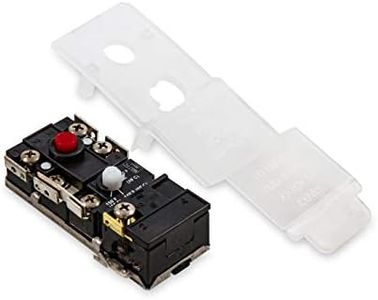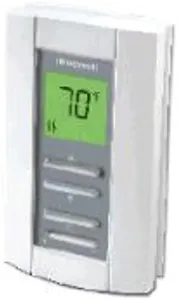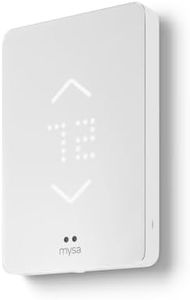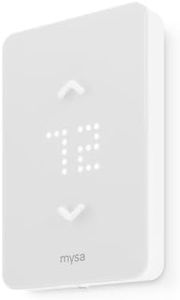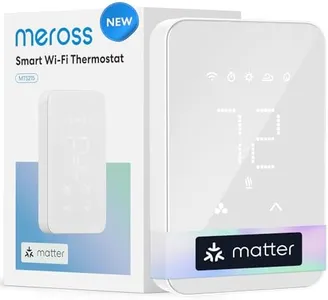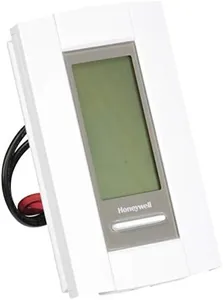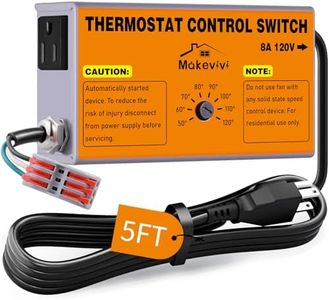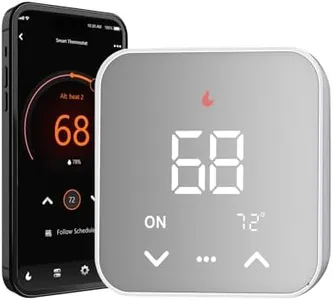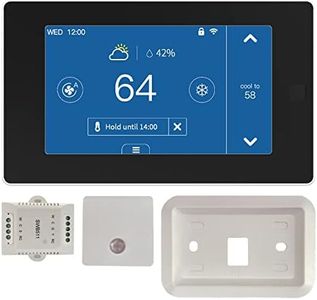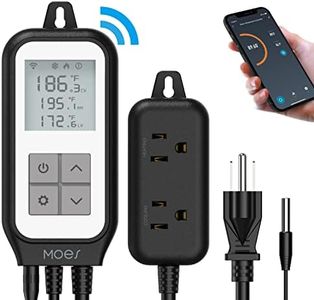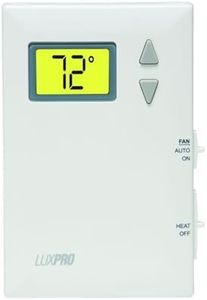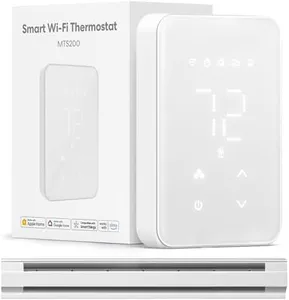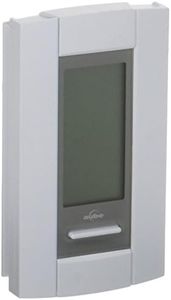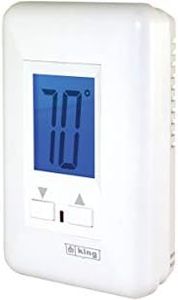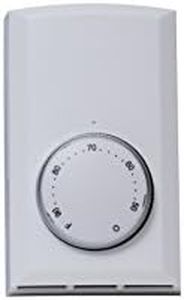10 Best Thermostat For Electric Baseboard Heat 2026 in the United States
Our technology thoroughly searches through the online shopping world, reviewing hundreds of sites. We then process and analyze this information, updating in real-time to bring you the latest top-rated products. This way, you always get the best and most current options available.

Our Top Picks
Winner
Honeywell TL7235A1003 Line Volt Pro Non-Programmable Digital Thermostat with Electronic Temperature Control, 240-Volt
Most important from
1318 reviews
The Honeywell TL7235A1003 Line Volt Pro is a digital thermostat designed for controlling electric baseboard heat. One of its key strengths is its compatibility, as it operates on a 240-Volt system, making it suitable for various electric heating setups. The on-demand backlight feature ensures that the display is easy to read in different lighting conditions, which is a plus for usability. Additionally, the soundproof operation is a significant benefit, particularly if you're sensitive to the 'clicking' sounds common with other thermostats.
The heating indicator provides a simple visual cue to confirm when the heat is on, adding to its user-friendly design. However, this thermostat is non-programmable, which could be a limitation if you desire more control over your heating schedule for energy efficiency and convenience. The button control interface is straightforward, though not as advanced as some smart models with app control.
Installation appears to be manageable for those with some electrical knowledge, though it might be challenging for complete beginners. This product would be best suited for users looking for a simple, reliable thermostat without the need for advanced programmability or smart features.
Most important from
1318 reviews
Mysa Smart Thermostat for Electric Baseboard Heaters 240V | Remote Control with 100% Free APP | Easy Install | HomeKit, Alexa, Google Home | Wi-Fi Programmable | Temp. & Humidity Alerts
Most important from
1283 reviews
The Mysa Smart Thermostat for Electric Baseboard Heaters stands out for its compatibility with high/line voltage electric heating systems (120–240V) and its easy installation process for systems with at least four wires, including a neutral or a second live wire. It is important to ensure your system meets these requirements since it does not support low-voltage systems or two-wire installations, which can be a limitation for some users with older baseboard systems.
The thermostat is 40% smaller and features adaptive display technology, including sleep and wake functions, which allow for personalized display brightness settings. With a user-friendly app, you can program your heating schedule quickly and efficiently, making it a highly programmable device. Smart integrations with Alexa, Google Assistant, and Apple HomeKit provide seamless connectivity, making it easy to control remotely through voice commands or the app, enhancing its user interface and smart features.
Additionally, it offers energy insights and geofencing, which can help improve energy efficiency. While these features are impressive, it is crucial to verify compatibility with your specific heating system and ensure you have the correct wiring setup to take full advantage of this smart thermostat.
Most important from
1283 reviews
Mysa Smart Thermostat LITE - Line Voltage Electric Baseboard Heater Thermostat 120V/240V | DIY Install | HomeKit, Alexa, Google | Wi-Fi Programmable | App Control
Most important from
517 reviews
The Mysa Smart Thermostat LITE is a solid choice if you have high-voltage electric baseboard heaters (120-240V) and want to add smart control without professional installation. It’s built for electric baseboard and fan-forced heaters but requires a specific wiring setup—at least four wires including a neutral or second live wire—so it won’t work with simpler two-wire setups or low-voltage systems. Installation is supported by helpful video guides and expert customer service, making it approachable for DIY users comfortable with basic electrical work.
This thermostat offers easy temperature control both through its touch buttons on the unit and a free mobile app, which lets you adjust settings remotely and create heating schedules. These schedules can help reduce your electricity bills by up to 26%, which is a meaningful energy-saving feature. The device connects reliably over 2.4 GHz Wi-Fi (also compatible with mesh networks) and supports voice commands via popular smart home platforms like Apple HomeKit, Alexa, and Google Home.
The interface is straightforward, showing temperature clearly, and it includes useful extras like geofencing and lockable settings to prevent accidental changes. The design is modern and compact, fitting well on your wall without being intrusive. Because it only works with specific wiring and voltage requirements, it’s important to check compatibility before purchasing to avoid inconvenience. Mysa Smart Thermostat LITE is best suited for homeowners with compatible electric baseboard heaters who want a programmable, app-controlled thermostat with smart home features and energy-saving potential, but it’s less ideal for those with simpler or incompatible heating setups.
